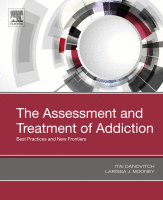The role of nutrition in addiction recovery: What we know and what we don’t
By David A. Wiss

This paper summarizes the impact of substances on nutritional status and proposes strategies that can be employed to replenish and improve eating behavior in treatment settings. Because drugs and food are both associated with cognitive control and executive functioning in risk/reward decision-making, intervention strategies are grounded in accepted concepts of neuroscience and psychology.
Subscribe for weekly insights and research exploring the link between nutrition & mental health.
Abstract
With substance use disorder rates rising, there is an urgent need for new and innovative treatment modalities. The concept of using nutrition to treat addiction was proposed as early as 1955 but has not yet been accepted in conventional substance use disorder treatment.
At the present time, specialized training programs for nutritionists seeking work in addiction treatment settings do not exist. In the past decade, many private sector addiction treatment facilities have begun to incorporate “holistic” approaches to recovery, which include an emphasis on healthful eating, but there are no established standards of practice.
Recently, nutrition therapy guidelines have been developed for specific intoxicating substances and this chapter will add to that body of knowledge by emphasizing the latest advances in our understanding of gastrointestinal health. This chapter summarizes the impact of substances on nutritional status and proposes strategies that can be employed to replenish and improve eating behavior in treatment settings. Because drugs and food are both associated with cognitive control and executive functioning in risk/reward decision-making, intervention strategies are grounded in accepted concepts of neuroscience and psychology.
Public health campaigns and specialized training programs targeting primary care physicians, mental health professionals, and other substance use disorder treatment professionals are warranted.
Conclusion
Nutrition therapy should address the most serious medical and nutrition conditions first and then target the psychological and behavioral aspects of eating. Cooking classes and life skills development are important to the application of new nutrition knowledge.
Emphasis should be placed on gastrointestinal health and reintroduction of foods high in fiber and antioxidants such as fruits, vegetables, whole grains, beans, nuts, and seeds. Adequate intake of protein and omega-3 essential fatty acids should be consumed daily.
Regular meal patterns can help to stabilize blood sugar. Water should replace sweetened beverages. Caffeine and nicotine intake should be monitored. Dietary supplements can be very helpful in the recovery process, but should not supplant whole foods. Once nutrition behavior has improved, use of dietary supplements should be reevaluated. Laboratory tests and stool samples assessing gut function should provide valuable insights in upcoming years.
In addition to expertise with the interaction between specific substances and nutritional status, registered dietitian nutritionists working in treatment settings should specialize in gastrointestinal health, eating disorders, and should be keeping up to date with food addiction research. There is a timely need for specialized nutrition expertise in substance use disorder treatment settings, including outpatient clinics and “sober living” environments.
Public health campaigns and specialized training programs targeting primary care physicians, mental health professionals, and other substance use disorder treatment professionals are warranted.